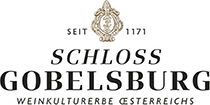BOTTLE CLOSURES & REFUND POLICY
BOTTLE CLOSURES – NATURAL CORK & SCREW CAP
When we carefully bottle our wines at Schloss Gobelsburg, we use either natural corks or screw-caps to close the bottles. The choice of bottle closure depends on how the wine is made. For wines that are mainly vinified in neutral containers, we use a neutral closure (screw cap). Whereas for all wines that are predominantly matured in wooden barrels, we use natural closures (cork). In this way, the expert can already visually identify the container in which the wine was vinified.
The natural cork is more than just a bottle closure. For us, the natural cork is part of the winemaking process. Each cork releases substances into the wine. There is no such thing as a ‘neutral’ cork. Tannins, phenolics and aromatic components – even in only microscopic amounts – affect the wine in the bottle. Since this circumstance applies to all bottles with a cork stopper, the cork becomes a part of the winemaking process. Corks can release varying amounts of tannins and other substances into the wine. As a result, there is also some individualization between bottles. Each bottle is therefore an independent personality. These differences are also intentional. This phenomenon is also known from the production of quality sparkling wine, where each bottle tastes slightly different due to bottle fermentation. Just as we have chosen to ferment and age various wines in stainless steel tanks, we have chosen to ferment and age other wines in wooden barrels. Wooden barrels also release substances and aromas into the wine. We are also of the opinion that the substances in the cork are part of our wine culture and contribute something positive to the overall picture of a wine.
Over the years and decades, in cooperation with the cork manufacturers in Portugal and Italy, we have continuously refined the selection process for the corks used. Strict selections and procedures have been implemented in order to get the best suited natural corks. The once-recurring ‘cork taste’ – a chlorine compound called TCA – is now almost extinct. All corks used at the winery are then individually checked. Historically, batches of cork were tested on a selection from a batch, which is very inaccurate. Today every single cork is checked for this connection.
COMPLAINTS ON CORK
For this reason, we have decided not to accept any more complaints about cork. The whole topic is a much-discussed problem among wine lovers. Also, for a winery, the topic is always associated with discussions and annoyances, since we are often unable to verify which fault is the cause of the complaint, nor which possible improper storage and/or treatment of the wine has happened outside of our sphere of influence.
As with everything in the world, there is a certain residual risk that a bottle of wine may not fully correspond to what a wine lover imagines due to the influence of a natural cork, for the reasons outlined above. After many discussions, we came to the conclusion that in the chain of all parties involved, there is only one who has to bear the residual risk in this case. This is the one who opens the bottle. Everyone else in the supply chain (wine shop, dealer, importer, winery, cork producer) can (a) usually neither check what the wine should have and whether it is actually the specified wine, since the wine has oxidized by then or at all turned into vinegar and (b) can only empty the bottle down the drain as there is no other use for the content. From today’s perspective, repatriation is therefore neither feasible nor sustainable.
Therefore, we can only advise you: if you do not want to accept that every now and then a bottle does not correspond to the subjective idea of perfection, then do not buy wines with a cork stopper. You not only save yourself, but also us a lot of effort and time. We are just as annoyed by every imperfect bottle of wine as you are, but we have thought for a long time and have come to no other conclusion than: when you buy wines with a cork stopper, you also acquire the residual risk that every now and then a bottle contains some additional aroma components.
